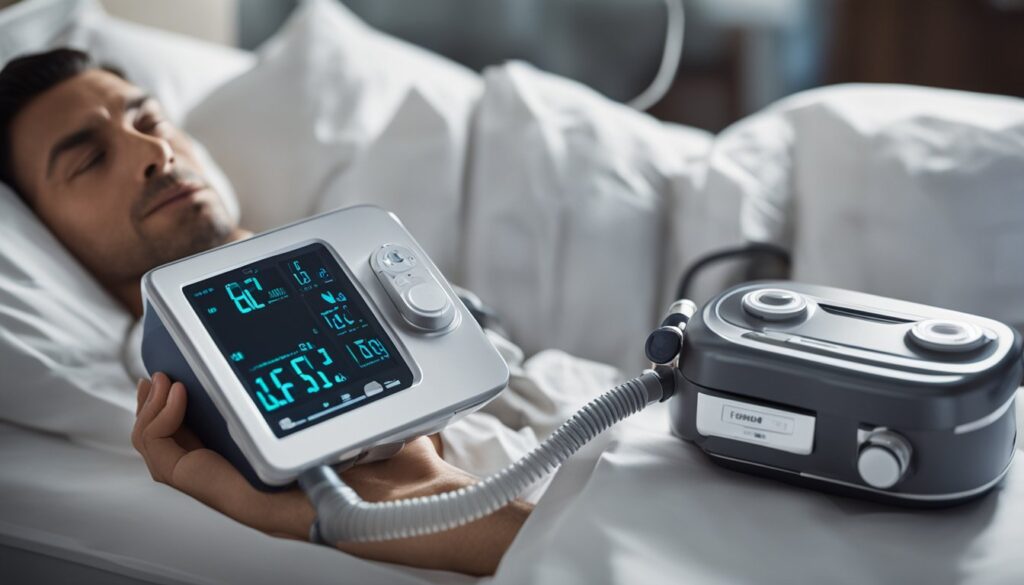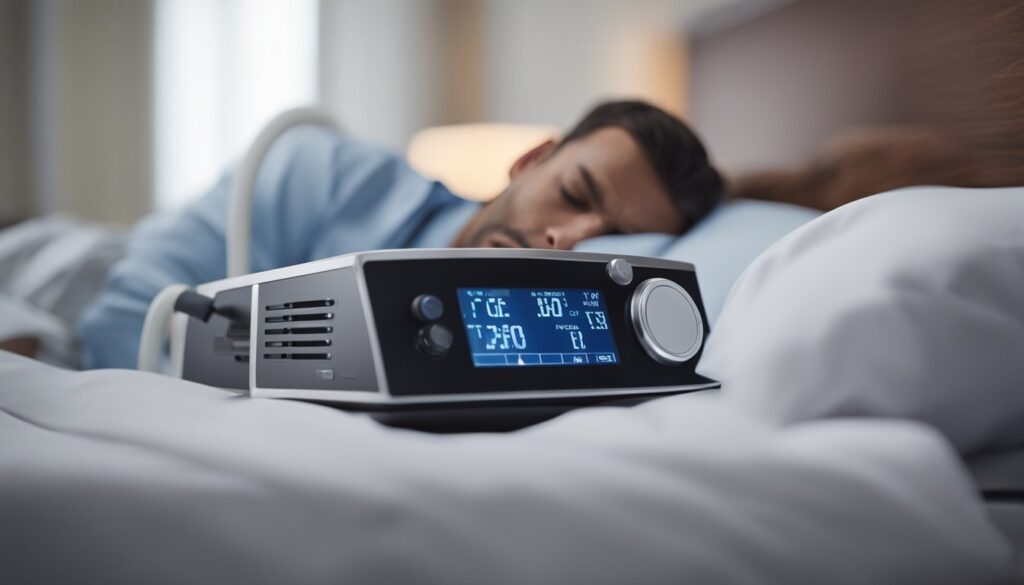Sleep apnea, a serious sleep disorder, occurs when your breathing is interrupted during sleep. If you’re experiencing symptoms like loud snoring, episodes of breathing cessation witnessed by another person, abrupt awakenings accompanied by shortness of breath, or a choking or gasping sensation, it may be a sign of this condition. Your risk of several health complications increases if your sleep apnea remains untreated. Recognizing these symptoms is crucial as they play a pivotal role in timely diagnosis and management.

The impact of untreated sleep apnea on your health can be profound, elevating your risk for conditions such as high blood pressure, stroke, and heart problems, including heart attacks and atrial fibrillation. Your day-to-day life might be affected by excessive daytime sleepiness, which can decrease your quality of life and increase the risk of accidents while driving or operating machinery. Cognitive effects like difficulty concentrating, memory problems, and mood changes are also associated with the disorder. Understanding the potential morbidity associated with sleep apnea can motivate you to seek a proper diagnosis and explore treatment options that can alleviate symptoms and reduce risks.
Causes and Risk Factors of Sleep Apnea

You should be aware that sleep apnea is not caused by a single factor, but instead results from a combination of demographic, lifestyle, physiological, and medical influences that increase the likelihood of airway obstruction during sleep.
Demographic and Lifestyle Influences
- Age and Gender: Your chances of developing sleep apnea can increase with age, and being male is associated with a higher prevalence of the condition.
- Obesity: Excess body weight, particularly around the neck, can compress and restrict your upper airway during sleep, leading to obstructive sleep apnea (OSA).
- Smoking: Tobacco use can contribute to inflammation and fluid retention in the upper airway, worsening sleep-disordered breathing.
Physiological and Medical Factors
- Neck Circumference and Upper Airway Structure: A larger neck circumference can mean more soft tissues around the upper airway, contributing to potential blockage. Intrinsic structural factors of your upper airway may also predispose you to obstruction.
- Family History and Genetic Factors: If OSA is prevalent in your family, you may have an increased genetic risk.
- Associated Health Conditions: Other medical conditions, like hypertension or diabetes mellitus, can be both contributing factors to and complications of sleep apnea. In some cases, central sleep apnea may occur, where the brain fails to signal the muscles to breathe due to underlying health issues.
Health Impacts and Management

Understanding the effects of sleep apnea and how to manage them is crucial for your health. This section delves into the consequences of untreated sleep apnea and outlines effective treatment strategies.
Complications of Sleep Apnea
If you have sleep apnea, you’re at an increased risk for several serious health issues. Daytime sleepiness is one of the most immediate and noticeable effects, affecting your quality of life and increasing the risk of accidents. Over time, chronic sleep deprivation can lead to elevated blood pressure, increasing the likelihood of cardiovascular events. Furthermore, obstructive sleep apnea is linked to a higher risk of developing heart disease, experiencing a stroke, and metabolic disturbances like type 2 diabetes. Untreated sleep apnea may also contribute to depression and, in severe cases, can increase the risk of mortality due to various cardiovascular complications.
Treatment and Lifestyle Modification
Managing sleep apnea typically involves a combination of positive airway pressure therapy, such as using a CPAP machine, and lifestyle changes. The consistent use of CPAP can significantly reduce symptoms, improve your sleep quality, and lower blood pressure and other cardiovascular risks. Additionally, weight management is crucial; weight loss can reduce the severity of sleep apnea for overweight individuals. In certain cases, surgery may be necessary to remove or reduce obstructions in the airway. It’s essential to consult with your healthcare provider to create a tailored treatment plan that includes these modifications and appropriate medical interventions.
Frequently Asked Questions
In this section, you will find specific concerns addressed about the impact of sleep apnea on health and daily life.
How does sleep apnea affect long-term health?
Sleep apnea can lead to significant long-term health problems, such as hypertension, cardiovascular diseases, and type 2 diabetes. Managing this disorder is crucial to mitigate these risks.
What are the risks of untreated sleep apnea?
If you leave sleep apnea untreated, you risk developing severe health complications, including but not limited to heart arrhythmias, stroke, and heart failure. Consistent use of treatments like CPAP can significantly reduce these risks.
How can sleep apnea impact daily living and quality of life?
Struggling with untreated sleep apnea often leads to excessive daytime fatigue, causing poor concentration, irritability, and an increased risk of accidents. Ensuring proper treatment can improve these symptoms and enhance your quality of life.
Are there any serious health conditions associated with sleep apnea?
Yes, sleep apnea is associated with serious health conditions like obstructive sleep apnea. The strain on your body from repeated breathing interruptions can increase the chance of developing these issues.
Can sleep apnea influence life expectancy?
Research indicates that severe untreated sleep apnea can negatively influence your life expectancy, mainly due to its association with cardiovascular diseases. Adequate treatment can help manage this risk.
What are the potential outcomes of combining alcohol with sleep apnea?
Alcohol can worsen sleep apnea by relaxing the muscles in your throat, which may exacerbate breathing difficulties during sleep. This can increase the frequency and intensity of breathing interruptions and should therefore be avoided.